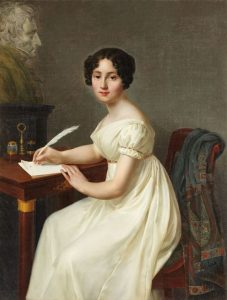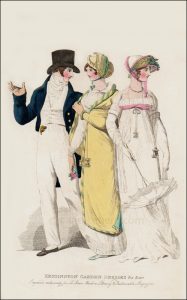JAFF novels are like batches of cookies. A few years ago, someone took a beloved old recipe and created a tasty new version with their own slightly different spice mix. Others did something similar, and readers like me enjoyed the burst of unique flavour that came through each time a writer added their own spice, even if they sometimes weren’t top quality literature.
But when the cookies became popular, opportunists’ taste buds couldn’t discern the subtle aspects that came from rare ingredients and a complicated method. Instead, they came up with their own simplistic recipe using only the most basic ingredients.
These cookies have been rolled and flattened by different hands, yet they use the same bland formula. There are bite size and colossal versions, some with so many layers you can’t eat them in one bite. A few have substituted efficiency tools for old-fashioned mixing to the right texture. Too many have put a ton of sprinkles on, thinking sugar is surely as good as spice. But this alternative cookbook has one thing in common: after we’ve tasted these cookies, we find ourselves wanting something interesting for dessert.

I bow to authors who constantly try new recipes, and readers who enjoy the taste rather than scarfing them down just because someone put a plateful in front of them.
In my opinion, this proliferation has caused a weakening of the sub-genre of Regency romance that we call Jane Austen Fan Fiction (JAFF). Of course, in order to avoid problems, it’s best to know how to recognize them. The following are over-used scenes or tropes that I’ve seen in many other novels, both older and newer and admit to either using or using something very similar. Now, many of these come from canon, but they can be overdone, and I am among those who has been caught.
Over-used situations I’ve used at one point or another:
- Darcy at the mantle.
- Darcy pacing the perimeter of the room.
- Darcy fiddling with his signet ring.
- Too much of Elizabeth as a “good walker.”
Similar weak points I’ve seen as a reader:
- Elizabeth’s lip chewing.
- Darcy looking out the window.
Over-used tropes I’ve used:
- Elizabeth or Mr. Bennet teases Darcy for the insult and/or Darcy says he didn’t think she heard or knew she heard and says he changed his mind and apologizes, saying she’s the most handsome woman of his acquaintance.
- Accidental meetings in a book store or the opera.
Over-used tropes can offer a bit of warmth and commonality to Jane Austen Fan Fiction, but some that are not consistent with Austen are used so often, readers confuse them with Austen’s work. Some items that are not in Austen’s work are:
- Older sons and younger daughters for Mrs. Gardiner (in canon, it’s two girls aged 6 and 8 and two younger boys).
- 50- to 60-something ages for the Bennet parents and the Gardiners (these would be Elizabeth’s grandparents’ ages).
- Darcy walking down the gallery with a candelabra.
- The Lake Scene.
- The Look (one I like to refer to!)
- Some of the above mentioned like window-gazing and ring-twiddling.
- A consistently sparkling, perky, and positive Elizabeth (she sulks, runs away, avoids, doubts in canon).
- A consistently reticent, scowling, and proud Darcy (he smiles 8 times and engages in light banter at Netherfield) or one who is overly gallant (he admits his awkwardness at Rosings).
- Character names like Richard (Colonel Fitzwilliam), Fanny (Mrs. Bennet), Madeline (Mrs. Gardiner), Lord Matlock for Colonel Fitzwilliam’s father, or any given names for Mr. Bennet: all of this list are NOT canon. Mr. Gardiner is Edward in canon.

Henri-François Riesener (1767-1828) – Alix de Montmorency, Duchesse de Talleyrand
What can we do about this? As authors, when we use tropes, we must be aware of them and consciously make the decision rather than automatically follow fashion. Better yet, try something original rather than leaning on what other authors have done to death. As readers, be aware of what is canon and what is not and not chastise authors who, for example, choose a name other than Richard for Colonel Fitzwilliam or Fanny for Mrs. Bennet.
Story lines that have been done over and over CAN suffer, even though the new author’s intention is to make it fresh. You’re asking for comparisons to past versions, and additions to the premise may well have been better done in another story as well. In addition, readers may just get tired of the same premise over and over!
It’s always better to try a new premise than to rehash an old one. Two examples in my reading experience where there have been flops in newer versions are the forced marriage scenario and “compromise” scenario. Curious that in the Regency, the word compromise did not mean what authors think it does, and many authors apply Victorian standards to set up their Regency ruin of a single lady.
What examples have you read that have been over-done and suffered in the latest copies, even by very popular authors?
Another pet peeve is the conflict-free story. I don’t mind a sweet romance if it has a soupcon of dramatic tension to keep the reader’s interest, but I don’t see the point in a straightforward, no strings attached, problem-free romance that’s basically taken away all the barriers to the protagonists’ getting together and adds nothing more of interest than a happily-ever-after, leaving the reader unfulfilled. Some authors think by writing sex-free, they must write sexual tension-free and drama-free. It’s not the same thing. Austen’s books all had numerous subtle flavours to them, some dangerously salacious, and all had dramatic tension! Your readers can take it, and there’s a whole lot more readers out there who will latch onto your stories when they realize they will keep the reader on his or her toes—or those toes curled in excitement! Remember Lesson #1: As an author, your goal is to provide a reading experience with the greatest level of satisfaction that is within your control.

An interesting story Miss Ray By William Wood, 1806 Met Museum
Where to get fresh ideas? Lesson #15 was not just for the sex scene! Get inspiration from others for those difficult-to-write scenes, i.e., read. Re-read Pride and Prejudice, of course! Read the other Austen novels, the Juvenilia, and Austen’s letters. Read nonfiction in your era, such as Regency history, fact books, and history blogs for ideas that come out of real life characters, laws, or events. Read other romance and JAFF novels, including unpublished works, and look for the plot holes and what-ifs within them. (I know some authors avoid reading JAFF to avoid any influence in their writing, however, knowing the genre is critical to finding a niche and finding new ideas, e.g., discovering you did not invent that particular scenario!)
NEVER copy ideas. It may not be true plagiarism, but it’s equally as nasty to do so! Instead, get inspiration from comparable era books like Regency romance. Read novels in other genres. Look at what you like to read that’s popular in fiction outside of Regency romance and consider how it could apply—other readers like dragon stories, too. (Sorry, that one’s been done, more than once, too!)
Talk to your friends in JAFF and brainstorm—the craziest suggestion can spark the idea for your next novel and its very fresh, spicy, unique premise! Bon Appétit!
Disclaimer: I’m not a writing expert. I’m just a writer who learned some stuff other writers might like to know instead of learning the hard way. My approach is pragmatic, and my posts are not professionally edited!
Save
Like this:
Like Loading...
 You will find a cover reveal and excerpt over at the Meryton Press blog https://merytonpress.com/secret-affairs-by-suzan-lauder/, plus a chance to win an e-book of Secret Affairs for those who leave a comment. I know lots of you are keen to win books! Best of luck! This book is as engaging as the others in the Cecilia’s Mismatches series, so hurry to get your copy of Secret Affairs as soon as it comes out. It’s a stand-alone novella, so you don’t have to have read the others, but you still have time to do so! You can’t go wrong.
You will find a cover reveal and excerpt over at the Meryton Press blog https://merytonpress.com/secret-affairs-by-suzan-lauder/, plus a chance to win an e-book of Secret Affairs for those who leave a comment. I know lots of you are keen to win books! Best of luck! This book is as engaging as the others in the Cecilia’s Mismatches series, so hurry to get your copy of Secret Affairs as soon as it comes out. It’s a stand-alone novella, so you don’t have to have read the others, but you still have time to do so! You can’t go wrong.




